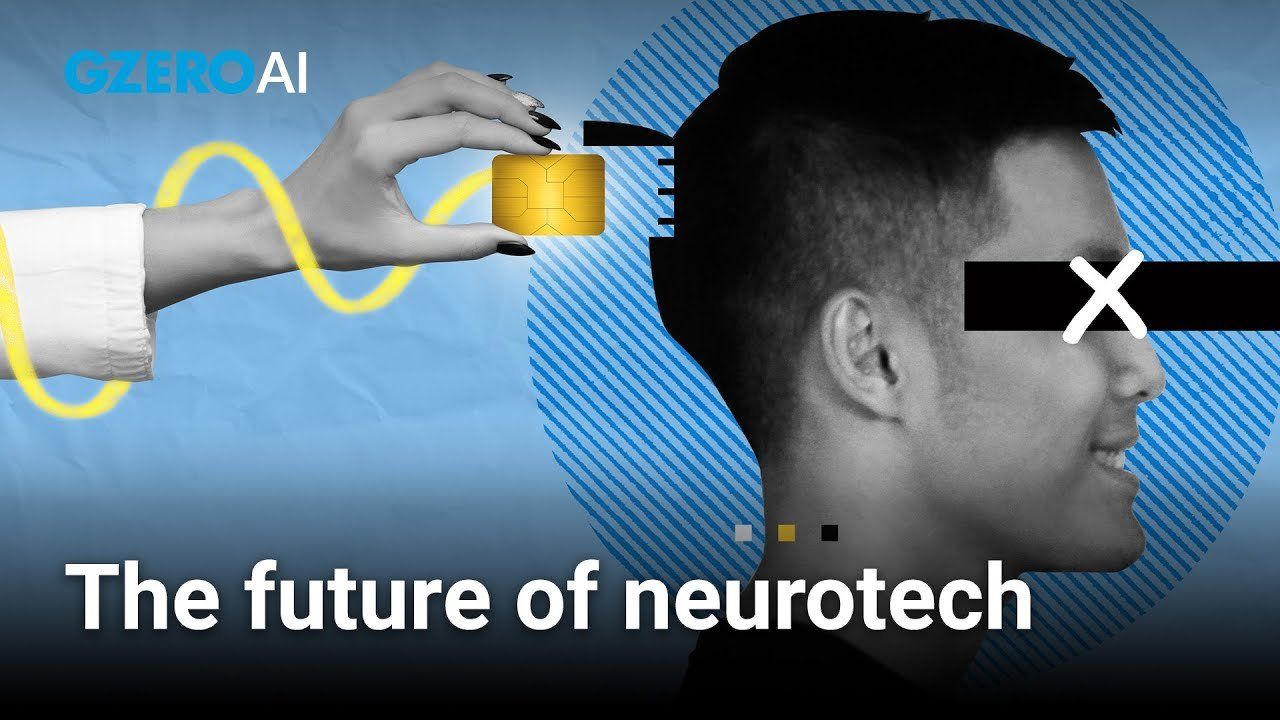GZERO AI Video
How neurotech could enhance our brains using AI

How neurotech could enhance our brains using AI | GZERO AI

So earlier this year, Elon Musk's other company, Neuralink, successfully installed a brain implant in a 29-year-old quadriplegic man's brain named Noland Arbaugh. Last week, this story got a ton of attention when Neuralink announced that part of this implant had malfunctioned. But I think this news cycle and all the hyperbole around it misses the bigger picture.
Let me explain. So first, this Neuralink technology is really remarkable. It allowed Arbaugh to play chess with his mind, which he showed in his demo. But the potential beyond this really is fast. It's pretty early days for this technology, but there are signs that it might help us eliminate painful memories, repair lost bodily functions, and allow us to maybe even communicate with each other telepathically.
Second, this brain implant neurotechnology is part of a wider range of neuro tech. A second category isn't implanted in your body, but instead it sits on your body or near it, and picks up electric signals of your brain. These devices, which are being developed, by Meta and Apple, among many others, are more akin to health tracking devices, except they open up access to our thoughts.
Third point here is that this tech is an example of an adjacent technology to AI being turbocharged by recent advances in AI. One of the challenges of neurotech has been how to make sense of all of this data coming from our brains. And here is where AI becomes really powerful. We now increasingly have the power to give these data from our minds, meaning. The result is that the technology and corporations developing them have access to the most private data we have, data about what we think. Which of course brings up the bigger point here, which is we're on the cusp of getting access to our brain data and the potential and of abuse for this really is vast. And it's already happening.
Governments are already using neurotech to try and read their citizens minds, and corporations are working on ways to advertise to potential customers in their dreams. And finally, I think this shows very clearly that we need to be thinking about regulation and fast. Nita Farahany, who has recently written a book about the future of neurotechnology, called, “The Battle for Your Brain: Defending the right to Think Freely in the Age of Neurotechnology,” thinks we have a year to figure out the governance of this tech. A year, it's moving that fast. So many in the AI debate are debating and discussing the existential risks of AI, we might want to pay some attention to the technologies that are adjacent to AI and being empowered by it, as they likely present a far more immediate challenge.
I'm Taylor Owen, and thanks for watching.
As expected, the Supreme Court struck down the bulk of Donald Trump's sweeping “Liberation Day” tariffs as illegal … and almost nothing changed.
Chris, an Army veteran, started his Walmart journey over 25 years ago as an hourly associate. Today, he manages a Distribution Center and serves as a mentor, helping others navigate their own paths to success. At Walmart, associates have the opportunity to take advantage of the pathways, perks, and pay that come with the job — with or without a college degree. In fact, more than 75% of Walmart management started as hourly associates. Learn more about how over 130,000 associates were promoted into roles of greater responsibility and higher pay in FY25.
Somewhere in the Donbas region, Ukrainian soldier Artem Bondarenko says he hasn’t slept through the night in months as he defends Eastern Ukraine.
In the latest episode of Vladimir Putin and Xi Jinping's hit wellness podcast This Authoritarian Life, we learn how positive communication patterns can break negative cycles in our relationships -- especially our relationships with Iran, Syria, Venezuela, and Cuba. #PUPPETREGIME